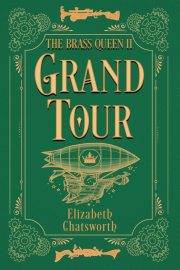Rebound Novels
by Paul Jessup
 Novels are like long, committed relationships. They take months to years of your life, and they require complete and utter devotion to their singular purpose. Certainly, there is something to living inside of a novel, breathing inside of it, thinking about it every moment of your day. It’s an all-consuming thing, as exhausting as it is rewarding.
Novels are like long, committed relationships. They take months to years of your life, and they require complete and utter devotion to their singular purpose. Certainly, there is something to living inside of a novel, breathing inside of it, thinking about it every moment of your day. It’s an all-consuming thing, as exhausting as it is rewarding.
But once it’s gone, once it’s over? It’s like the ending of a relationship. I wrote about it here, and I called it my post novel blues. While short stories are quick trysts and poems are kisses in the dark and never spoken of again, novels are things that demand attention, commitment, and every last bit of yourself. So when they end, they can end like a bad marriage. And the longer it takes to write them, the harder it is to move on.
But, after any relationship, moving on is necessary. And for me, I have a lot of false starts. I try and do short stories, but they never truly satiate that novel itch. That need to sink down once again and live inside the text of a work. Something only a novel can do. Then come the rebound novels. Oh, those almost-loves! That’s what I want to discuss today. I’m not saying my experience is universal; of course it’s not. But I’m going to lay down what I go through in case it helps some wary writer out there going through the same thing, and wanting to know that they’re not alone. That they can survive this whole ordeal.
Rebound novels can be frustrating. For me, it takes a few ideas. A few almost runs. A few months to maybe a year to get into the next big thing. Sometimes I’ll just start writing something exactly like what I just finished. Of course, that never works out. Then I might try something completely different, rushing into it, blindly following the excitement of something new and shiny.
But it’s not time yet. It takes a while to mend your heart and move on. I think this is why so many writers go through a sophomore slump. What are they writing? They’re writing rebound novels, of course. Not the true thing, not the love thing, but a pale specter in the shape of a book, beckoning to you. Promising only frustration in their wake.
I think that’s a big problem, that if you rush out another pitch to fulfill a contract right away, you might sell your editor on a rebound novel. And the road ahead will be a painful one, just as Michael Chabon experienced writing Fountain City — a book sold on pitch. Five years and 1,500 pages writing later, he abandoned it.
Yes, even a rebound novel can be long, and frustrating, and still broken and not right. And like some rebound relationships you know it’s wrong, but you will keep working on it anyway. Because you want it to work, you need it to work. But alas, it’s only a rebound novel. Once he ditched that one and started working on The Wonder Boys everything became easier.
Sometimes I think the whole rebound novel experience is an iterative one. That you’re not creating failures, but you’re instead working towards whatever the next novel will eventually become. Each minor failure and broken heart gets cannibalized and pulled together, all the research and character designs, plot synopsis, all of that, will eventually lead you to the right one, the next one, the novel that will haunt you until completion.
And I think that’s the best way to look at rebound novels. Not as a string of failures, but rather as an evolution of the process. Would Chabon be able to work so quickly on Wonder Boys if he hadn’t worked on Fountain City for so long first? You can see the echoes of what he went through in penning his sophomore novel in Wonder Boys. With the one character working on a giant, magnum opus for years and years and never finishing.
Every time I finish a book I go through this pattern. It takes months and months and months before I find that next brilliant and beautiful thing to work on. The one that catches fire and takes off and becomes a true love kind of thing.
And when it does? Oh. The pain and suffering leading up to that point is always worth it. All those dead ends, false starts, and late night brainstorming sessions all pay off. Because in the end, it leads you here. To this next true novel, the one you’ve been waiting for. The one that will sing.
•••
Paul Jessup is a critically acclaimed/award-winning author of strange and slippery fiction. His novel Close Your Eyes is currently out from the Apex Book Company. You can visit him at pauljessup.com or on Twitter at @pauljessup.


